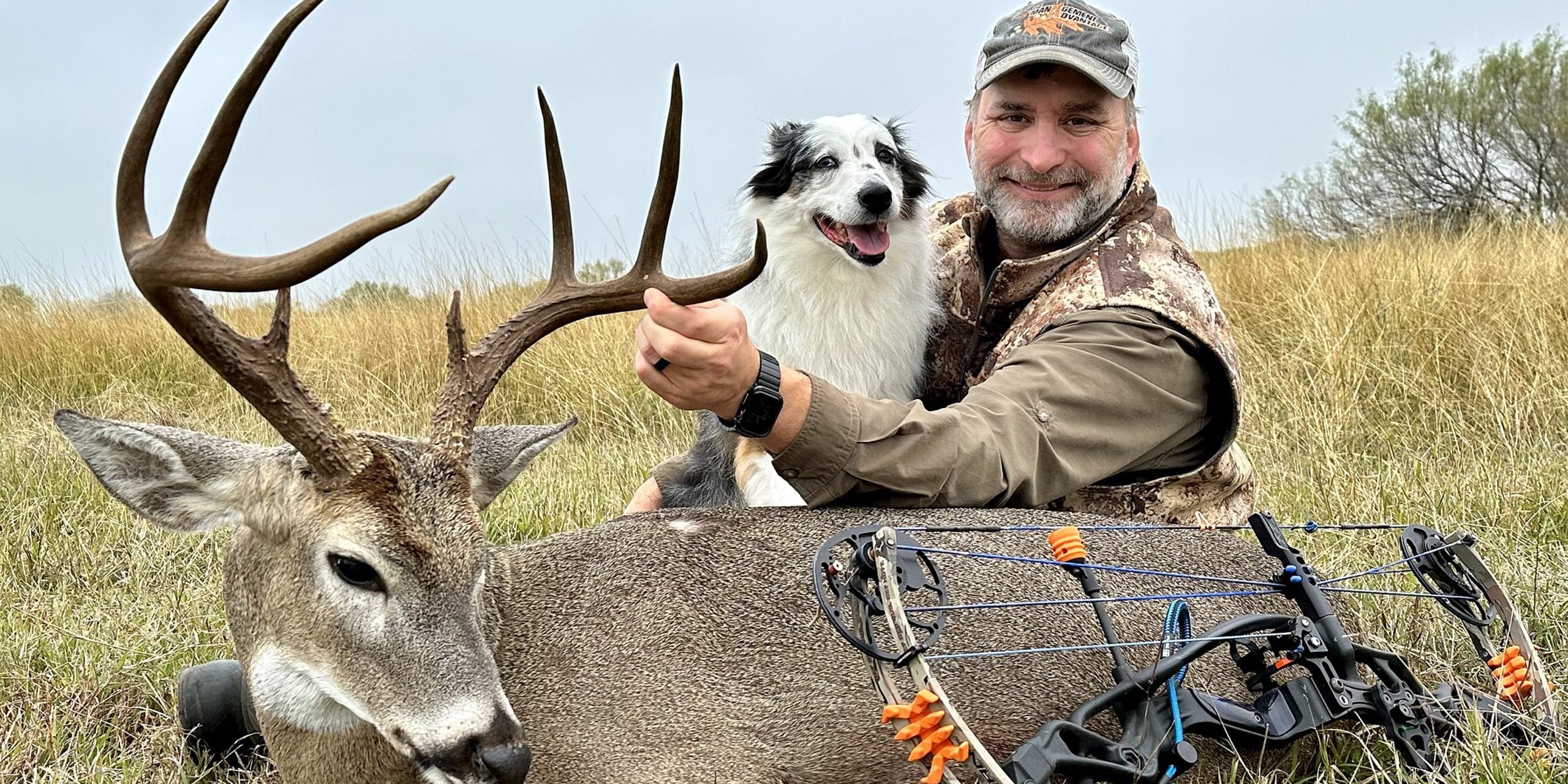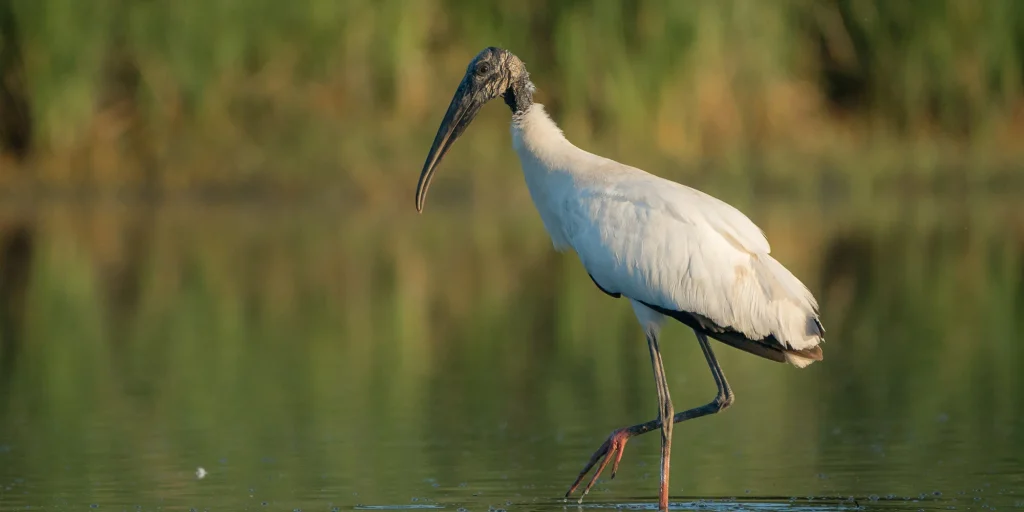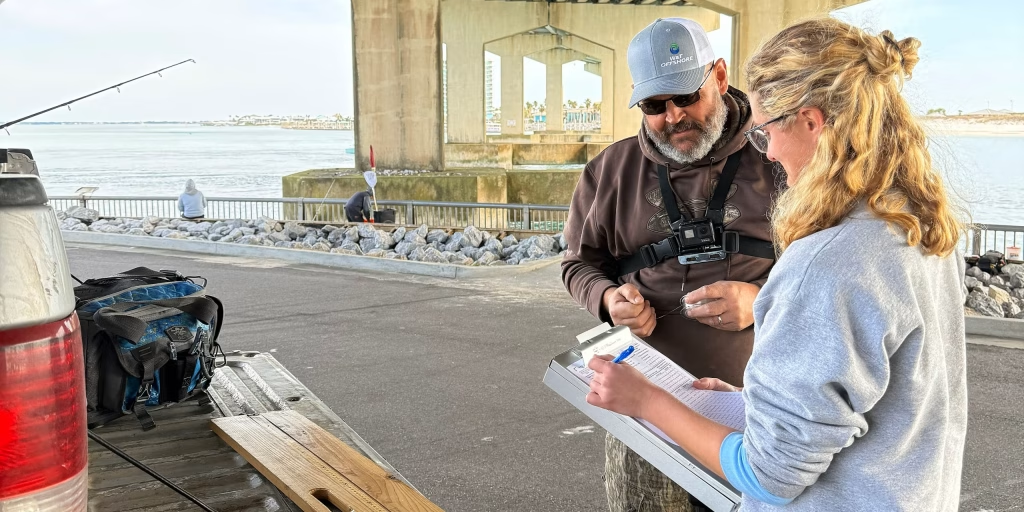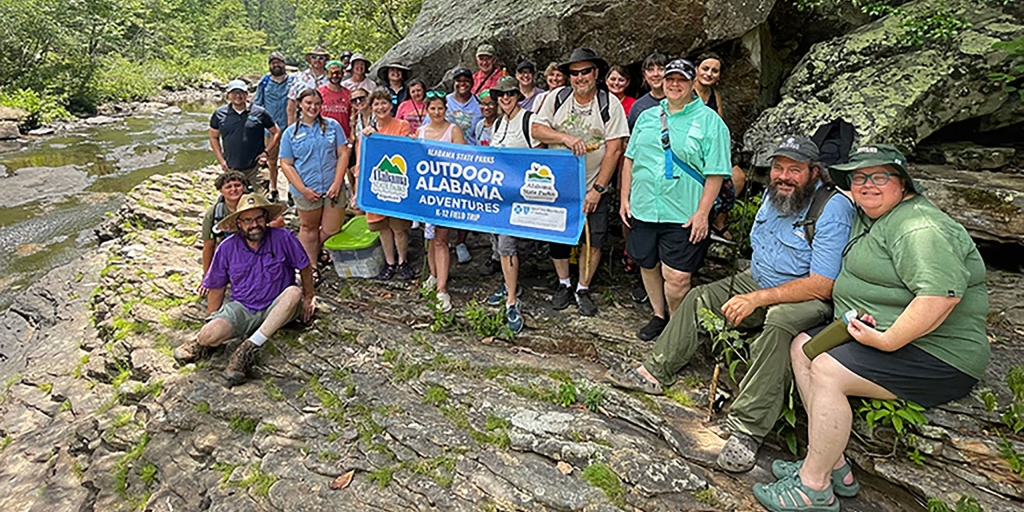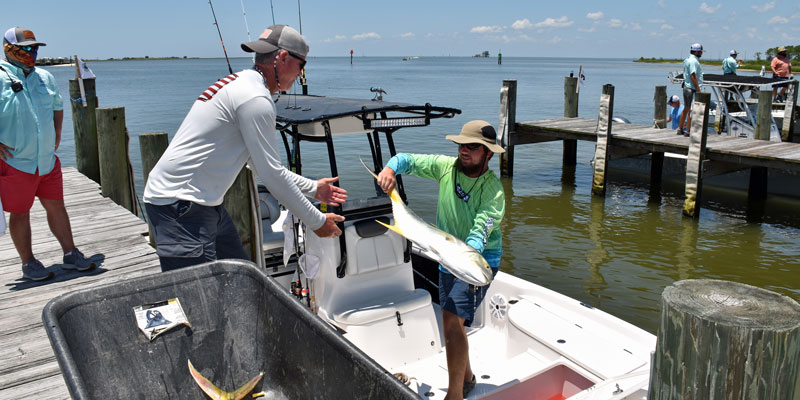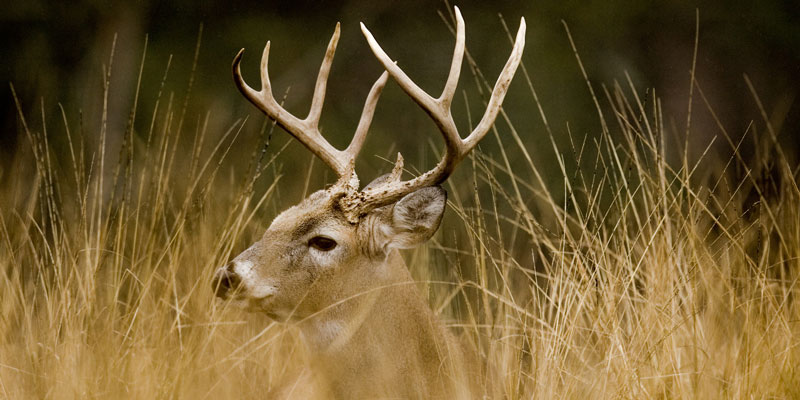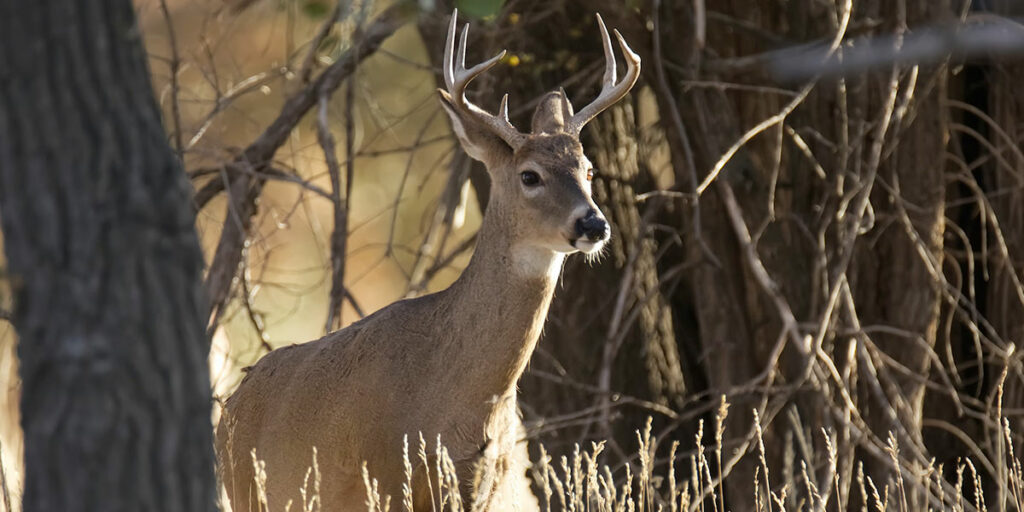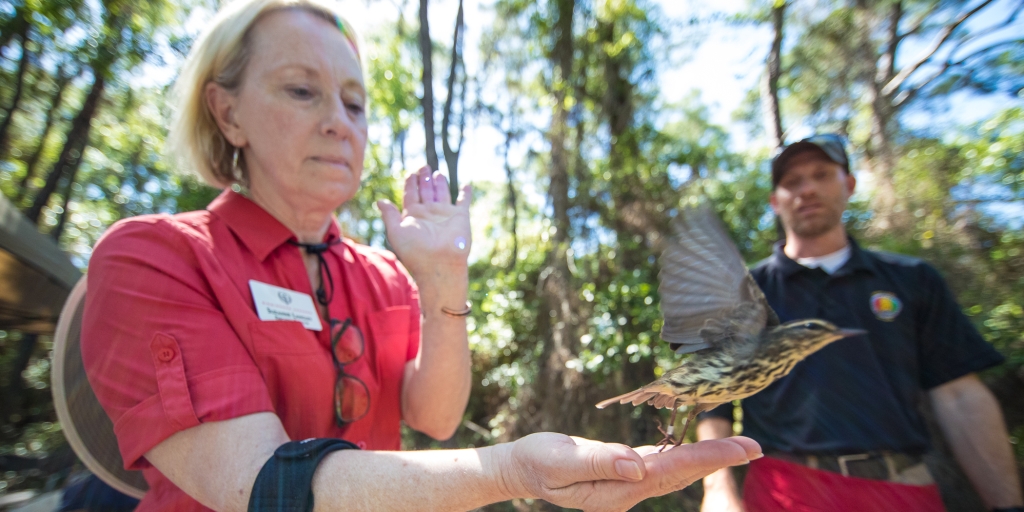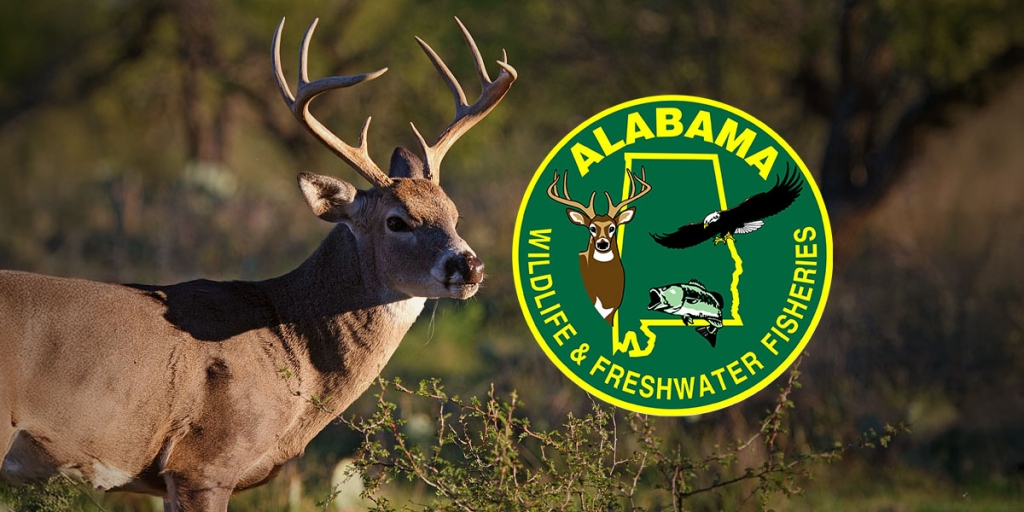According to Ron Regan, executive director of the Association of Fish and Wildlife Agencies (AFWA), it may not make the headlines in the newspapers but the election of Chuck Sykes as AFWA’s president is a big deal.
Sykes, Director of Wildlife and Freshwater Fisheries (WFF) with the Alabama Department of Conservation and Natural Resources (ADCNR), started serving his one-year term in September and has already been on a whirlwind tour to seven states, the District of Columbia and Canada in his official duties as president.
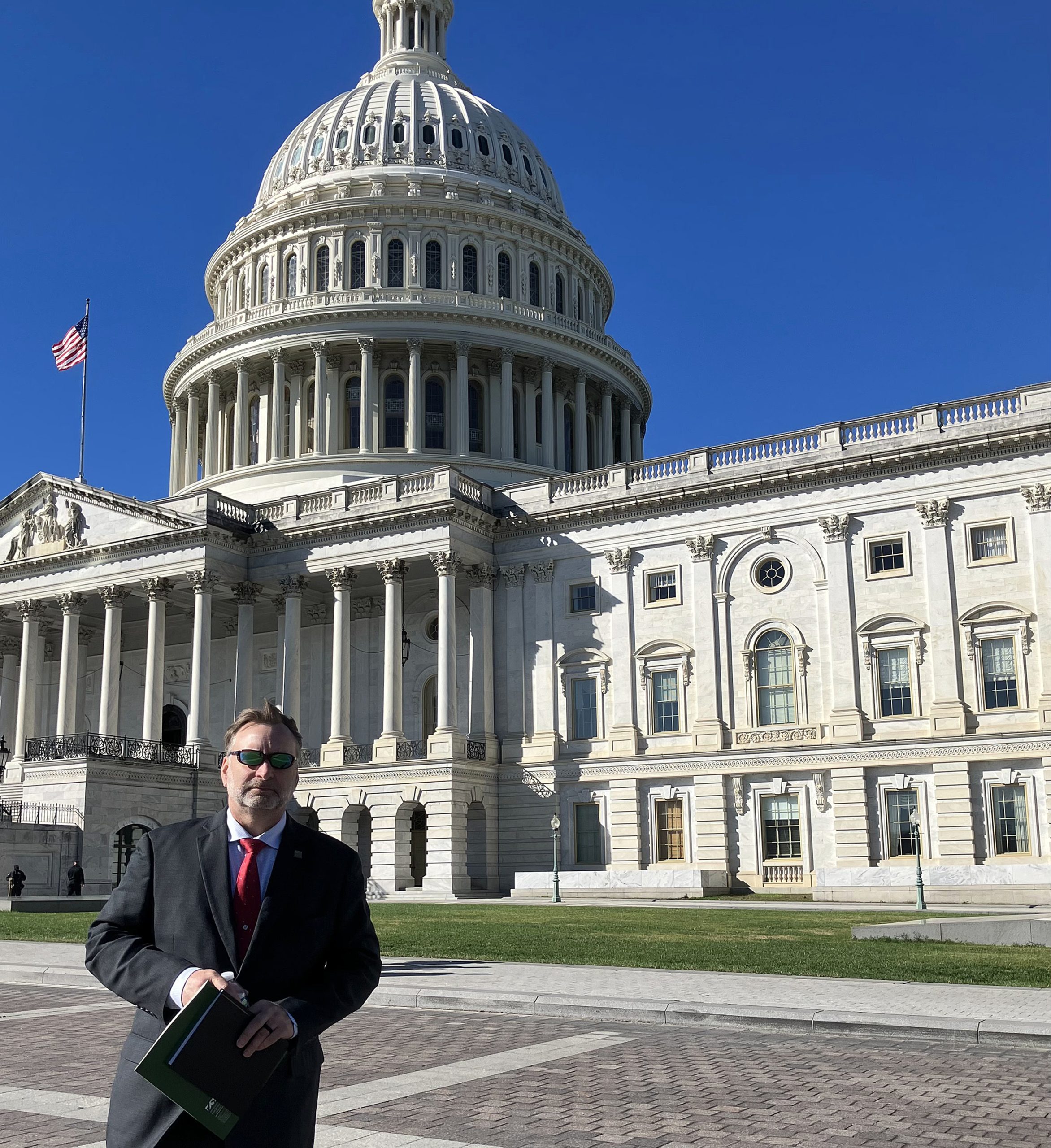
“It’s a huge honor for Chuck,” Regan said. “The association doesn’t elect someone unless they have proved their worth in their work with the association. It does, in fact, mean that Chuck has or could have access to the director of U.S. Fish and Wildlife Service or national wildlife organizations. Those are extremely important. We do rely on our president to be our principal spokesperson on issues. So, it’s not just about approving policy. We can bring Chuck to D.C. to testify or meet with a committee or be at some event to mingle with somebody important in Congress, who, in turn, is important to the state fish and wildlife agencies.”
With offices in D.C., AFWA was formed in 1902 to represent fish and wildlife agencies in all U.S. states and territories as well as Canadian provinces.
“AFWA basically exists to make sure the rights and privileges and jurisdictional responsibilities of state fish and wildlife agencies are upheld and no harm is done through federal legislation, rulemaking or policy,” Regan said. “When possible, we advocate for funding and other authority to help states do their work better. It’s interesting to note that the provinces and territories of Canada are also members of the association. That’s why we had our annual meeting in Calgary, Canada, just a couple of months ago when Chuck became president.
“Our mission is basically to look out for the states. We’re all about making sure the states have the resources to do their jobs and they don’t get compromised by some new federal program that takes away Chuck’s authority to manage species within the borders of Alabama.”
ADCNR Commissioner Chris Blankenship is pleased Sykes has this opportunity to share his substantial knowledge and experience with the rest of the U.S. and Canada.
“I’m happy for Chuck and his potential impacts around the country,” said Commissioner Blankenship. “He has brought a good common-sense approach to managing wildlife in Alabama and has done some progressive things here. I’m excited he has the opportunity to take that to other parts of the country and help them make the same strides we’ve made here in Alabama.”
Although AFWA operates with 26 employees and a $5 million budget, Regan said the D.C. offices are not “command central.”
“We rely on our leaders, like our president, to make decisions, guide directions and set tone,” he said. “There is virtually nothing that is major or substantive when it comes to a national issue like chronic wasting disease (CWD) or avian influenza or endangered species that we don’t run through our president. So, he has a very significant role to play in shaping the tone, tenor and content on what we say on any national issue. Of course, he helps establish priorities.”
Regan said many who love the outdoors will benefit from Sykes’ role as AFWA president.
“To your typical sportsperson in Alabama, they may say ‘Huh,’” he said. “To that I would say, fish and wildlife conservation is based on partnerships, on science of course, and it crosses borders and jurisdictions. Through Chuck’s leadership, he’s looking for good science, improving partnerships and making sure no harm is done to what states do best when it comes to managing fish and wildlife.
“There are benefits that are not insignificant to making sure every quail hunter, deer hunter or bass fisherman continues to have the resources that are important to them, their families and their futures. I think at the end of the day Chuck’s work brings value in a tangible way to the future of conservation in Alabama and the other states and provinces.”
Sykes said AFWA’s work on Capitol Hill and with national NGOs (non-governmental organizations) may not gain media attention, but it does impact anyone who participates in hunting, fishing, shooting, bird-watching or exploring nature.
“It’s a big deal,” Sykes said. “There’s a lot going on from one end of our country to the other and the territories and Canadian provinces. AFWA looks out for all of it. One of our top priorities right now is trying to find alternative sources of funding to work on nongame species and help states fulfill their obligations for their state wildlife action plans. We can’t use Pittman-Robertson or Dingell-Johnson (legislation) dollars that hunters, fishermen and sports shooters are paying for on nongame species. One of the biggest deficits states have is money to spend on nongame species.”
Sykes said six years ago a blue-ribbon panel of state agency directors and NGO leaders convened and determined that executing the state wildlife action plans to ensure species diversity would take more than a billion dollars a year.
States came very close to gaining some relief on that funding when the Recovering America’s Wildlife Act (RAWA) was advanced in Congress.
“In the original bill that almost passed last year, Alabama would have received a bigger apportionment than funds from Pittman-Robertson and Dingell-Johnson combined,” Sykes said. “It was like $25 million that would have come to Alabama. It got kicked out of the omnibus package at the 11th hour last year. It may be reintroduced right after the first of the year.”
Sykes, who recently addressed AFWA’s western state members in Henderson, Nevada, will obviously promote the passage of that legislation, and his role as AFWA president opens many doors to those who might influence Congress.
“Me being the president, I have access that I have never had before,” he said. “Although I’m not particularly working on Alabama issues, this gives Alabama a huge voice. When the U.S. Fish and Wildlife Service is looking at rules that impact everybody, including Alabama, I’m there at the table. With the RAWA bill, I am behind the scenes, meeting with congressional staff who are drawing this up to make sure Alabama’s concerns are at the forefront.
“It’s a lot of work, a lot of travel and a lot of conference calls. Most people in Alabama don’t know and may not care, but what I’m doing for them through this could be monumental.”
Times have also significantly changed for the fish and wildlife directors across the nation. In years past, directors remained in that position for decades. Not so with the current climate. Sykes became WFF Director on December 28, 2012, and he is now the second-longest tenured director in the nation.
“The average tenure of a director is three years because of politics,” Sykes said. “It’s important to have someone who has been there and gone through the trials and tribulations to help mentor the new folks. I’m one of the old guys now.
“And other directors are teeing me up for what they’re going through, especially with western states and the anti-hunting movement. This helps me be proactive.”
Every time Sykes travels out of state, he realizes how great Alabama is for those who participate in anything to do with the outdoors.
“Alabama’s traditional user groups have forgotten what it was like when we didn’t have abundant game animals,” he said. “The Department did such good a job 50, 60, 70 years ago with restocking the state that deer are abundant in every county. In addition, the very generous seasons and bag limits give people ample opportunities. Alabama hunters and anglers have great public hunting and fishing locations, plenty of boating access, as well as public shooting ranges Our Department provides wonderful resources for all.
“When I talk to my counterparts, especially out West, I realize how good we have it in Alabama. The previous director in Nevada put in for 20 years before he got a deer tag. In 23 years, he got two elk tags. Our hunters have no clue what it’s like to not have the opportunities they do, to go deer hunting and kill three bucks and more than 100 does a season for a minimal cost. I have applied for a turkey permit in Arizona for the past five years and haven’t been drawn. It cost me $300 to apply, and I don’t get that back. I’m out $1,500 and have nothing to show for it.
“Imagine me not being able to turkey hunt in my own state. Our hunters and fishermen have it so good.”
David Rainer is an award-winning writer who has covered Alabama’s great outdoors for 25 years. The former outdoors editor at the Mobile Press-Register, he writes for Outdoor Alabama, the website of the Alabama Department of Conservation and Natural Resources.




